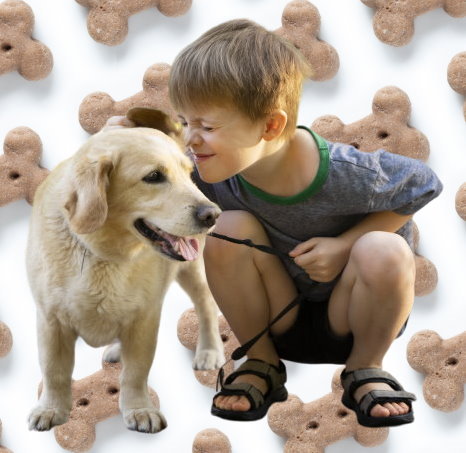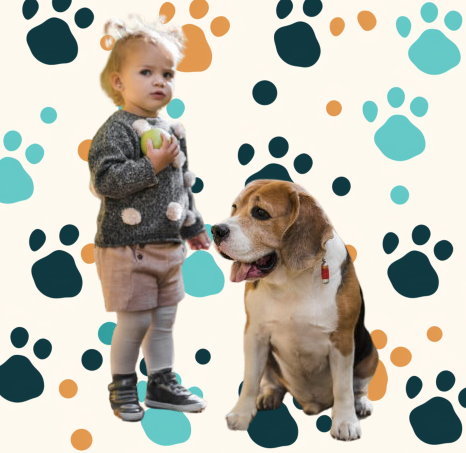Welcome to Dog Training Newbies !
Welcome to Dog Training Newbies !

Bringing home a new puppy is an exciting and joyful experience. Their adorable antics and playful nature can quickly steal your heart. However, it's essential to recognize the importance of early puppy training in building a strong foundation for a well-behaved dog. The early stages of a puppy's life are crucial for shaping their behavior and instilling good habits. In this article, we will explore why early puppy training is vital and how it sets the stage for a lifetime of companionship and positive interactions.
SOCIALIZATION: THE KEY TO A WELL-ADJUSTED DOG
Socialization is one of the most critical aspects of early puppy training. It involves exposing your puppy to various people, animals, environments, and experiences to help them develop into well-rounded and confident dogs. When done early and consistently, socialization helps prevent behavioral issues, fear, and aggression later in life.
Introduce your puppy to different sights, sounds, and situations. Take them for walks in the neighborhood, visit parks, and allow them to interact with friendly dogs of various sizes and breeds. Encourage positive interactions with people of different ages, including children, to help them become comfortable in diverse settings.
BASIC OBEDIENCE TRAINING: CREATING A LANGUAGE OF COMMUNICATION
Teaching your puppy basic obedience commands is essential for their safety and your peace of mind. Commands such as "sit," "stay," "come," and "leave it" establish a language of communication between you and your furry companion. They also provide structure and boundaries, making it easier for your puppy to understand what is expected of them.
Start training sessions early, as soon as you bring your puppy home. Keep the sessions short, fun, and positive, using rewards like treats, praise, and playtime to motivate and reinforce good behavior. Consistency is key—reinforce the commands daily and in various environments to ensure your puppy understands and follows them in different situations.
HOUSEBREAKING: ESTABLISHING GOOD HABITS
Housebreaking, or potty training, is an essential aspect of early puppy training. Teaching your puppy where and when to eliminate helps establish good habits and prevents accidents inside the house. Consistency, patience, and positive reinforcement are crucial during this process.
Establish a routine and take your puppy outside frequently, especially after meals, naps, and play sessions. Use verbal cues and reward your puppy when they eliminate in the designated area. If accidents happen indoors, avoid punishment and instead redirect your puppy to the appropriate spot.
PROPER LEASH WALKING: A SKILL FOR LIFE
Leash walking is an important skill that ensures the safety of both you and your puppy during outdoor excursions. Early leash training helps your puppy learn to walk politely on a leash without pulling, lunging, or becoming overly excited.


Introduce your puppy to the leash gradually, allowing them to become comfortable with the sensation of wearing it. Start training in a quiet, low-distraction environment and reward your puppy for walking calmly by your side. As their skills progress, gradually increase the level of difficulty by practicing in busier areas and introducing distractions.
POSITIVE REINFORCEMENT: BUILDING TRUST AND CONFIDENCE
Positive reinforcement is a powerful training method that focuses on rewarding desired behaviors rather than punishing unwanted ones. It helps build trust, strengthens the bond between you and your puppy, and encourages them to repeat behaviors that earn rewards.
When your puppy exhibits good behavior, such as following commands, walking nicely on a leash, or displaying appropriate social behavior, lavish them with praise, treats, and affection. This positive approach creates a positive association with training and encourages your puppy to continue learning and behaving well.
PROFESSIONAL GUIDANCE: ENLISTING THE HELP OF A TRAINER
While early puppy training can be done at home, enlisting the help of a professional dog trainer can be highly beneficial. A trainer can provide expert guidance, address specific behavioral concerns, and tailor training techniques to suit your puppy's individual needs.
A professional trainer can also offer socialization opportunities in controlled environments, allowing your puppy to interact with other dogs and people in a safe and supervised setting. They can guide you through the training process, provide valuable insights, and help you navigate any challenges that may arise.
In conclusion, early puppy training plays a crucial role in building a strong foundation for a well-behaved dog. Through socialization, basic obedience training, housebreaking, leash walking, and positive reinforcement, you can shape your puppy's behavior, instill good habits, and establish effective communication. Remember, training is an ongoing process that requires patience, consistency, and plenty of positive reinforcement. Investing time and effort in early puppy training will set the stage for a lifelong partnership filled with companionship, joy, and harmony.